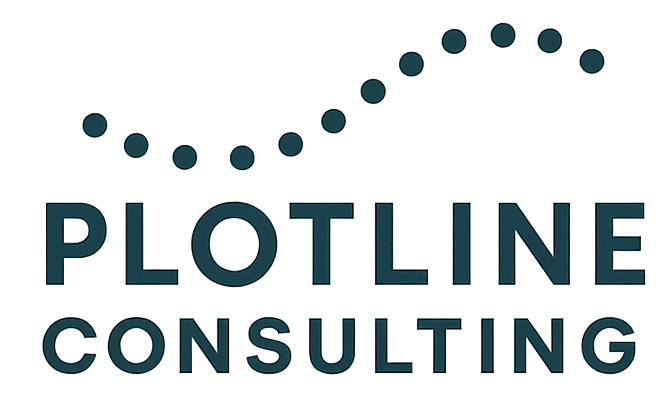Respect in Tough Decisions – Clarity, Fairness, and Dignity
Every organisation faces difficult moments: addressing underperformance, restructuring teams, or making cuts to survive economic pressures. These decisions are never easy - but avoiding them can worsen the situation. At Plotline Consulting, we believe that respect is the defining quality of how tough decisions should be made and executed.
Respect doesn’t mean shying away from those difficult calls. In fact, it often means facing them more directly. What matters is that those who are impacted are treated with clarity, fairness, and dignity throughout the process. When handled respectfully, even the hardest choices can strengthen trust rather than destroy it.
Why Tough Decisions might be a Respectful Act
Leaders sometimes hesitate to act on tough issues, especially when people are involved. But often they are what’s needed for everyone in the business - for example, leaving underperformance unaddressed demotivates the rest of the team, creating frustration and resentment. Likewise, failing to act during financial strain could jeopardise the whole organisation.
In many cases, making the decision itself is an act of respect - for the business and for the employees who rely on it. Assuming the decisions are being made for the best reasons for the business - and therefore the employees - the key for the people in the business is how it is executed. Clear communication, fair processes, and dignity in the delivery of tough decisions transform them from at worst destructive, at least disruptive, to constructive.
The Cost of Obscure Communication
The decision having been made, many good, empathetic leaders find it hard to communicate the decision itself - not wanting to deliver bad news or cause concern to others.
The truth is, not communicating enough, or with the clarity of what the impact could be on people, leads to worse consequences and concern for individuals and higher costs on the business as a whole. As a great coach often tells me - the stories people make up themselves in the absence of knowledge are usually far worse than the reality we haven’t yet communicated.
Gossip and speculation fill the void left by poor communication.
Top performers disengage or leave, fearing instability.
Productivity suffers as employees worry instead of focusing on work.
Ironically, the attempt to “soften the blow” by holding back information often worsens the impact of the same decision. People are remarkably resilient when they understand what is happening; what they can’t tolerate is uncertainty.
Clarity and Transparency
Respect begins with honesty. Employees may not like the decision, but they deserve the truth about what is happening and why. Leaders should avoid hiding behind vague language or delaying the inevitable. Instead, explain the rationale: what led to this point, what alternatives were considered, and why this path was chosen.
Transparency reduces fear by replacing speculation with facts. It also shows employees that they are trusted with the reality of the situation - an act of respect in itself.
Fairness in the Process
Respect is also demonstrated in the mechanics of how decisions are carried out:
Consistency - ensuring processes are applied fairly across individuals or teams.
Support - providing training, feedback, or opportunities to improve where possible.
Equity - offering appropriate packages, redeployment, or career support in cases of redundancy.
These measures don’t remove the pain of tough decisions, but they show that people have been considered and treated fairly.
Dignity in Delivery
Finally, respect is about dignity in human interaction. Delivering tough news privately, with empathy, and without blame makes a profound difference. Leaders should prepare carefully for these conversations, anticipate likely reactions, and respond with compassion.
It is not about being liked; it is about being trusted. Employees are far more likely to remain loyal and engaged - even if directly affected - when they feel they have been treated with dignity.
Respect as a Cultural Standard
When leaders model respect in tough decisions, they set a cultural standard for the whole organisation. Managers learn how to handle difficult conversations. Employees see that honesty and fairness are the norm. Over time, this builds a workplace culture where people feel safe, valued, and motivated - even when challenges arise.
Call to Action
At Plotline Consulting, we help leaders prepare for and navigate difficult decisions with clarity, fairness, and respect. From building the skills for tough conversations to designing transparent processes, our goal is to strengthen trust even in the hardest moments.
If your organisation is facing tough decisions, let’s talk. Plotline Consulting can help you lead with respect - protecting both your people and your business.
